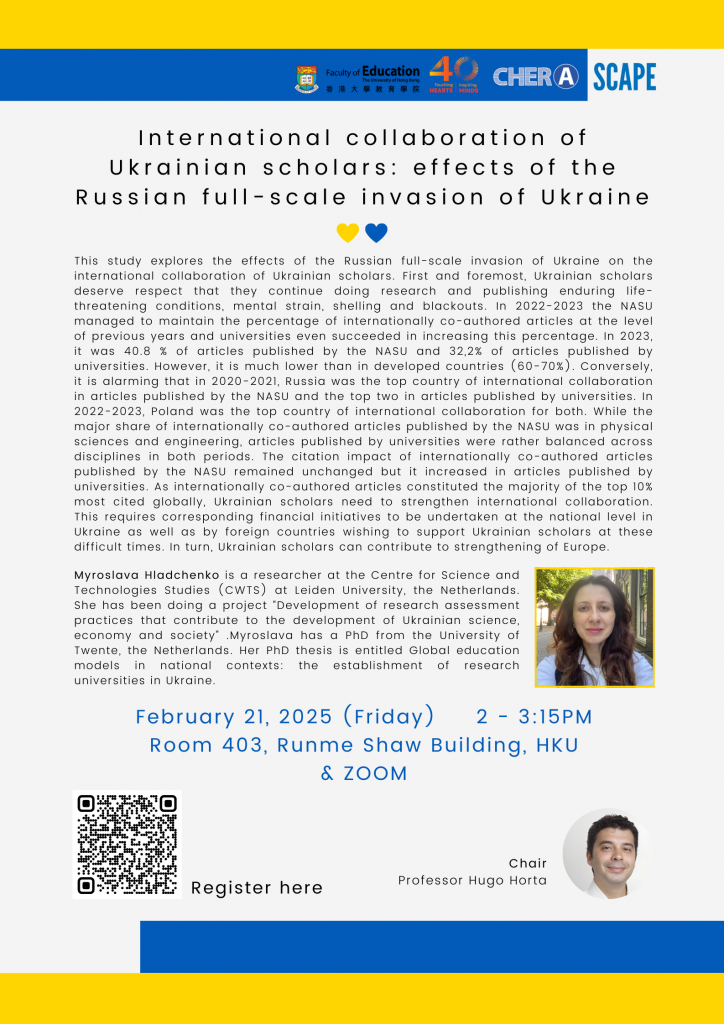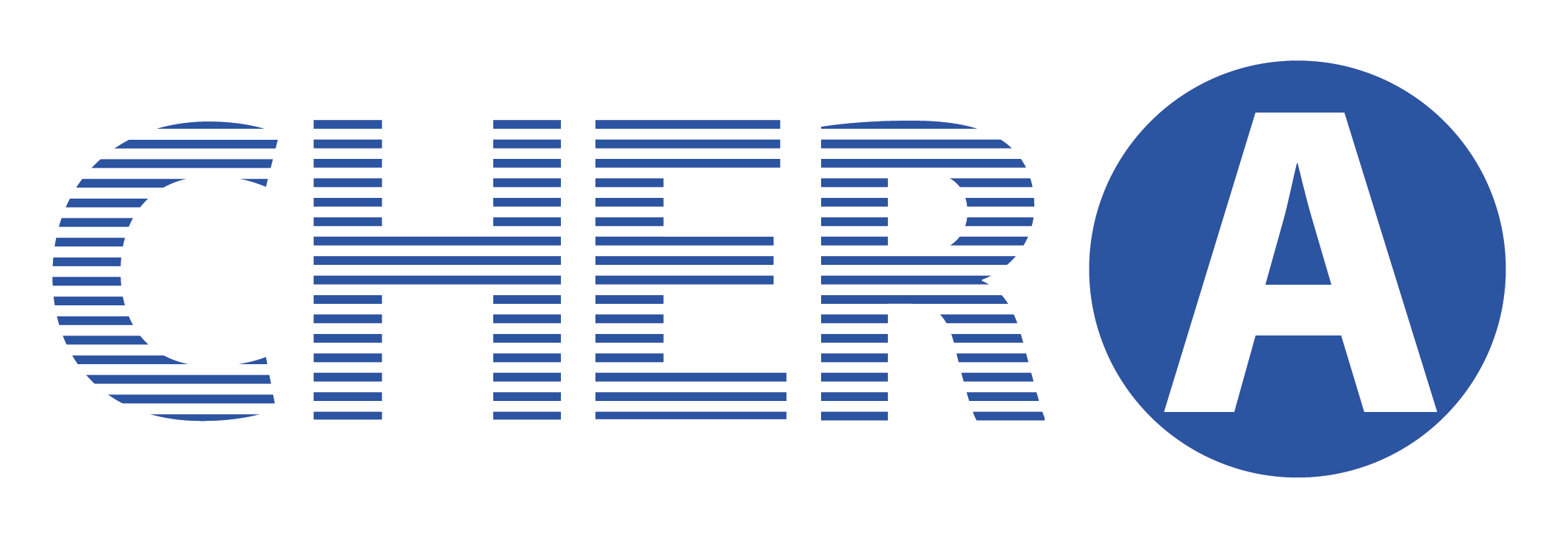
Time: 2:00pm to 3:15pm (HKT)
Date: Feb 21, 2025
Mode: Room 403 Runme Shaw Building/by ZOOM
Speaker: Dr. Myroslava Hladchenko (Leiden University)
Chair: Professor HORTA, Hugo (The University of Hong Kong)
Registration link: https://hku.au1.qualtrics.com/jfe/form/SV_6DLbQGxCIV3ILkO
Abstract
This study explores the effects of the Russian full-scale invasion of Ukraine on the international collaboration of Ukrainian scholars. First and foremost, Ukrainian scholars deserve respect that they continue doing research and publishing enduring life-threatening conditions, mental strain, shelling and blackouts. In 2022-2023 the NASU managed to maintain the percentage of internationally co-authored articles at the level of previous years and universities even succeeded in increasing this percentage. In 2023, it was 40.8 % of articles published by the NASU and 32,2% of articles published by universities. However, it is much lower than in developed countries (60-70%). Conversely, it is alarming that in 2020-2021, Russia was the top country of international collaboration in articles published by the NASU and the top two in articles published by universities. In 2022-2023, Poland was the top country of international collaboration for both. While the major share of internationally co-authored articles published by the NASU was in physical sciences and engineering, articles published by universities were rather balanced across disciplines in both periods. The citation impact of internationally co-authored articles published by the NASU remained unchanged but it increased in articles published by universities. As internationally co-authored articles constituted the majority of the top 10% most cited globally, Ukrainian scholars need to strengthen international collaboration. This requires corresponding financial initiatives to be undertaken at the national level in Ukraine as well as by foreign countries wishing to support Ukrainian scholars at these difficult times. In turn, Ukrainian scholars can contribute to strengthening of Europe.
About the speaker:
Myroslava Hladchenko is a researcher at the Centre for Science and Technologies Studies (CWTS) at Leiden University, the Netherlands. She has been doing a project “Development of research assessment practices that contribute to the development of Ukrainian science, economy and society” .Myroslava has a PhD from the University of Twente, the Netherlands. Her PhD thesis is entitled Global education models in national contexts: the establishment of research universities in Ukraine.
